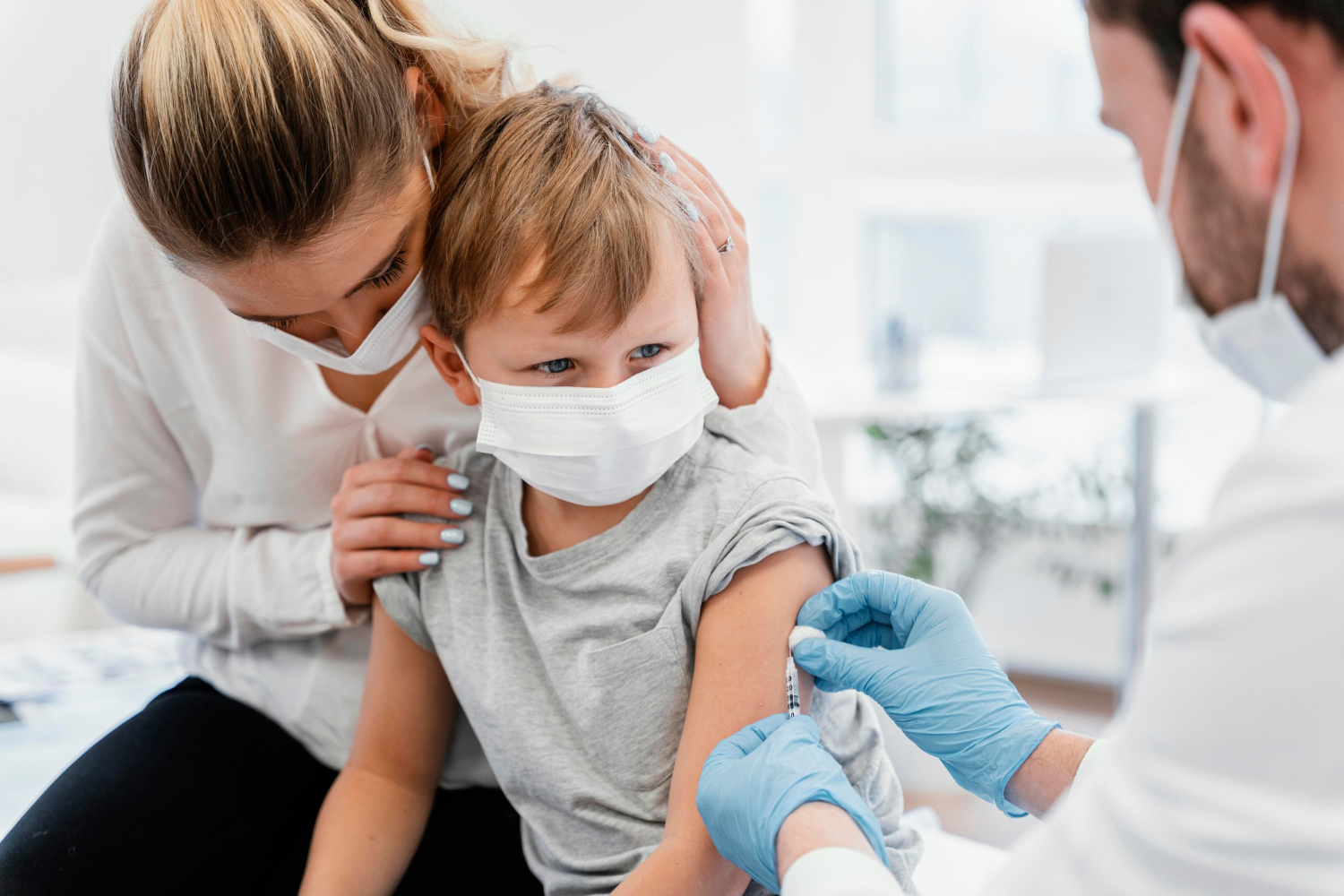OTTAWA – Five to 11 year-olds are now eligible to receive COVID-19 vaccinations after Health Canada approved the use of the Pfizer-BioNTech vaccine, with a modified dosing formulation, for the age group on Nov. 19.
“After a thorough and independent scientific review of the evidence, the department has determined that the benefits of this vaccine for children between five and 11 years-of-age outweigh the risks,” the federal agency stated on Friday.
Pfizer-BioNTech applied to Health Canada for the expanded age range on Oct 18. The drug regulator previously authorized the vaccine’s use in those 16 years or older in Dec. 2020 and children aged 12 to 15 back in May.
Immune response and safety data from an ongoing study in children were provided to Health Canada to consider in its decision.
The study involves 4,600 participants between five and 11 years-old with a median age of eight years-old.
There were 3,100 participants who received two Pfizer doses at 10 micrograms, three weeks apart and the remaining 1,500 participants received a placebo. That dose is one-third of the 30 microgram dose used for those 12 years-of-age and older.
According to the public health agency, clinical trials showed an immune response in the younger age group comparable to those between 16 and 25 years-old.
In making that conclusion, antibody levels generated in response to the vaccine in 264 children were compared to 253 people between the ages of 16 and 25.
The study “indicated that the neutralizing antibody levels were similar in children relative to that of young adults one month after the second dose,” according to a regulatory decision summary from Health Canada.
Among 1,305 vaccinated children and 663 non-vaccinated children, there were three COVID-19 cases in the vaccinated group compared to 16 in the placebo group.
The study concludes the “estimated vaccine efficacy” against COVID-19 one week after a second dose was nearly 91 per cent.
No reports of severe adverse reactions were reported, according to Health Canada.
Mild adverse reactions reported were: fatigue, headache, injection site redness and swelling, muscle pain, chills, fever, joint pain, swollen lymph nodes, rash and nausea.
The modified pediatirc formulation, according to Health Canada, is said to be “easier to use at administration sites” along with having a longer shelf life.
Vials of different doses have different markers to help distinguish between them and ensure children will receive the correct dose.
Whereas higher dose vials, for those 12 years of age or older, have a purple cap, the lower dose, for those between five and 11 years-old has an orange cap and border on the vial’s label.
Although a National Advisory Committee on Immunization document states “children have no symptoms or experience mild COVID-19 disease” in most cases, the committee’s recommendations emphasize other factors when weighing a risk-benefit decision, like social isolation resulting from a COVID-19 infection and the potential for “long COVID”—though the document also states “evidence is limited in pediatric populations” for the condition.
“Over the past two years, we have seen children face many social disruptions, as well as harms associated with pandemic restrictions, and though they are at lower risk of severe disease than adults, COVID-19 can result in serious outcomes in children, including hospitalization and in rare instances death,” NACI chair Dr. Shelly Deeks stated.
NACI is recommending two 10 microgram doses of the Pfizer vaccine be administered to children between five and 11 with a dosing interval of “at least eight weeks” between first and second doses.
“NACI is recommending at least eight weeks between doses, as we have seen that this approach generates good sustained protection in adults and emerging Canadian data suggest that longer intervals could be associated with even lower rates of myocarditis in adults and adolescents,” Deeks stated, adding, “it is essential that children and their caregivers are supported and respected in making their decisions regarding COVID-19 vaccination and are not stigmatized based on whichever choice they make.”
Health Canada has attached requirements for ongoing monitoring, reporting of adverse events following injections and monthly safety summary reports to be provided to the agency.




